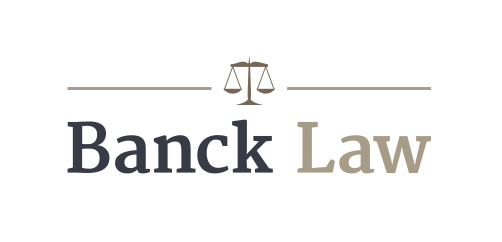In today’s digital age, social media permeates almost every aspect of our lives. From sharing details of our daily activities to posting about significant life events, social media platforms serve as a public diary. However, if you’re involved in a personal injury case, your social media activity could potentially impact your claim. At Banck Law, we guide our clients on how to navigate social media to safeguard their cases.
How Social Media Can Affect Your Case
Creating Factual Disputes:
The outcome of your personal injury case largely depends on the facts presented. What might seem like harmless social media posts can, unfortunately, be taken out of context and used against you. A seemingly innocuous comment or photo can lead to significant factual disputes about the extent of your injuries or your physical capabilities post-accident.
Inadvertent Testimonies:
Comments from friends, such as congratulating you on a recent outing, can also complicate your case. These interactions might be interpreted in ways that contradict your claims of injury severity, with friends potentially becoming witnesses in the case against you.
Risks Even Without Direct Mentions of the Injury
Posts that do not directly mention an accident or injury can still be scrutinized. For instance:
- Photos from a pre-planned vacation might be used to argue that you’re not as incapacitated as claimed, suggesting that you’re able to travel and therefore possibly fit to work.
- A simple picture from a short, painful hike could be misrepresented to suggest you are capable of engaging in strenuous activities.
- The dynamic and often physically active nature of content on platforms like TikTok or Instagram Reels can particularly be problematic. A video of you moving freely or engaging in any activity might give the illusion of health and wellness, which can be misleading and detrimental to your case.
The safest approach is to refrain from posting on social media until your case is resolved, ensuring posts can’t be used against you.
The Permanence of Social Media Posts
The danger of posting on social media extends beyond initial perceptions. Even if you delete a post, if it has been seen or saved by the opposing party, it can appear as though you are tampering with evidence. In Louisiana, this can be perceived as hiding something from the court, ultimately damaging your credibility and case.
Best Practices for Social Media Use During a Personal Injury Case
Adjust Privacy Settings:
Ensure your profiles are set to private, but remember, privacy settings can vary across platforms. A private setting does not guarantee complete protection against the use of your posts in legal proceedings.
Avoid Discussing Your Case:
Discussing your case details or your emotional state on social media can lead to unintended legal complications. It’s best to keep such conversations offline.
Consider Your Audience:
Even with strict privacy settings, remember that “friends” online often include acquaintances who might share information beyond your intended circle.
Think Before You Post:
Treat every post as if it could be seen by the opposing legal team. Avoid posting anything that could be construed as contradictory to your claims of injury or suffering.
Need Help? Contact Banck Law
Navigating a personal injury claim in the age of social media requires careful consideration and strategic legal guidance. If you’ve been injured and are facing a personal injury case, Banck Law is here to help. We understand the nuances of injury claims and how to protect your interests in the face of potential social media pitfalls. Contact Christian today at (985) 900-2440 to schedule a free consultation. Let us help you secure the compensation you deserve while managing the complexities of your digital footprint.


Recent Comments